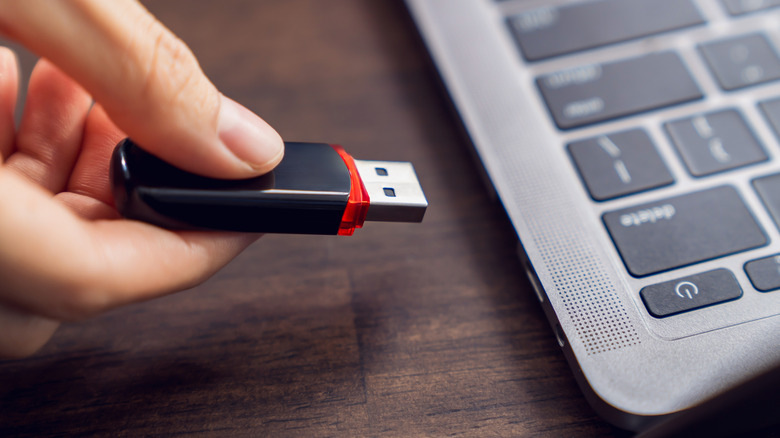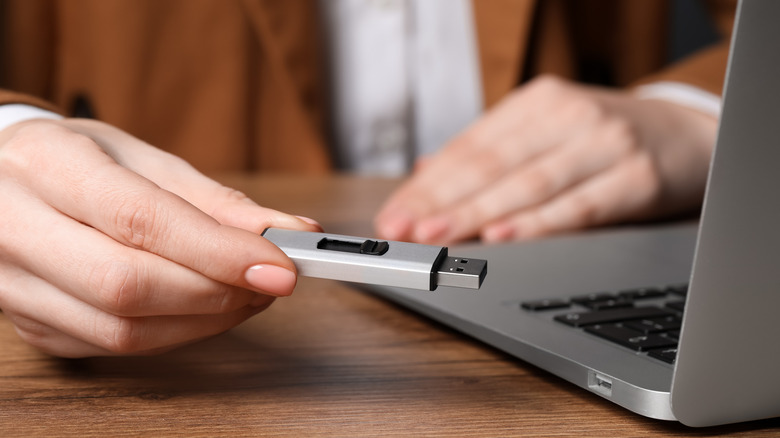Why Your USB Flash Drive Gets So Hot (And Is It Normal?)
Whether you're using a USB flash drive for file storage or other reasons, you might notice it getting surprisingly warm and sometimes even hot to the touch. A flash drive stores data on a silicon chip, allowing it to function without moving parts. But when you transfer data, the electrical activity inside the drive typically generates heat as a natural byproduct.
But the heat can seem worse, due to what the drive is made from. Metal absorbs heat more easily than plastic, which means a metal drive can feel hotter to the touch. Smaller drives are also an issue, as they tend to get hotter as well. Then there's the host device you're using, which actually transfers heat to the drive, making it even warmer. Plus, if you're consistently relying on the same USB drive and transferring a lot of information, or even multiple small amounts of info at once, the device can heat up quickly.
While a hot USB flash drive is perfectly normal, it's important to know the exact temperature for using one, as the general recommendation is to stay between 0 degrees Celsius to 25 degrees Celsius, or 32 degrees Fahrenheit to 77 degrees Fahrenheit. The computer, or other device you're plugging into, is safe at 25 degrees Celsius to 45 degrees Celsius, or 77 degrees Fahrenheit to 113 degrees Fahrenheit.
A red hot USB flash drive could be a sign of more serious problems
While USB flash drives last about 10 years and normally get hot while using, that doesn't always mean your data is safe. There could be an internal issue with the drive, as a bad part may be causing more heat than normal. If you're dealing with a red-hot drive, be sure to properly eject the USB drive instead of just pulling it out and letting it cool down before trying to figure out the problem. Be advised that the real issue may not be the drive at all.
The computer or other host device you're using may be the culprit. Sometimes the components inside the port are to blame, which means there may be some real damage, or simply dusty connectors that need cleaning. A malfunctioning USB port can seriously affect your computer, so it's important to address the problem right away.
Backing up important files on one or more USB flash drives is the best practice. That way, you're covered and won't have to worry about losing any data in the event something goes wrong. Recovering info from a damaged drive is nearly impossible, so it's always best to be safe.

